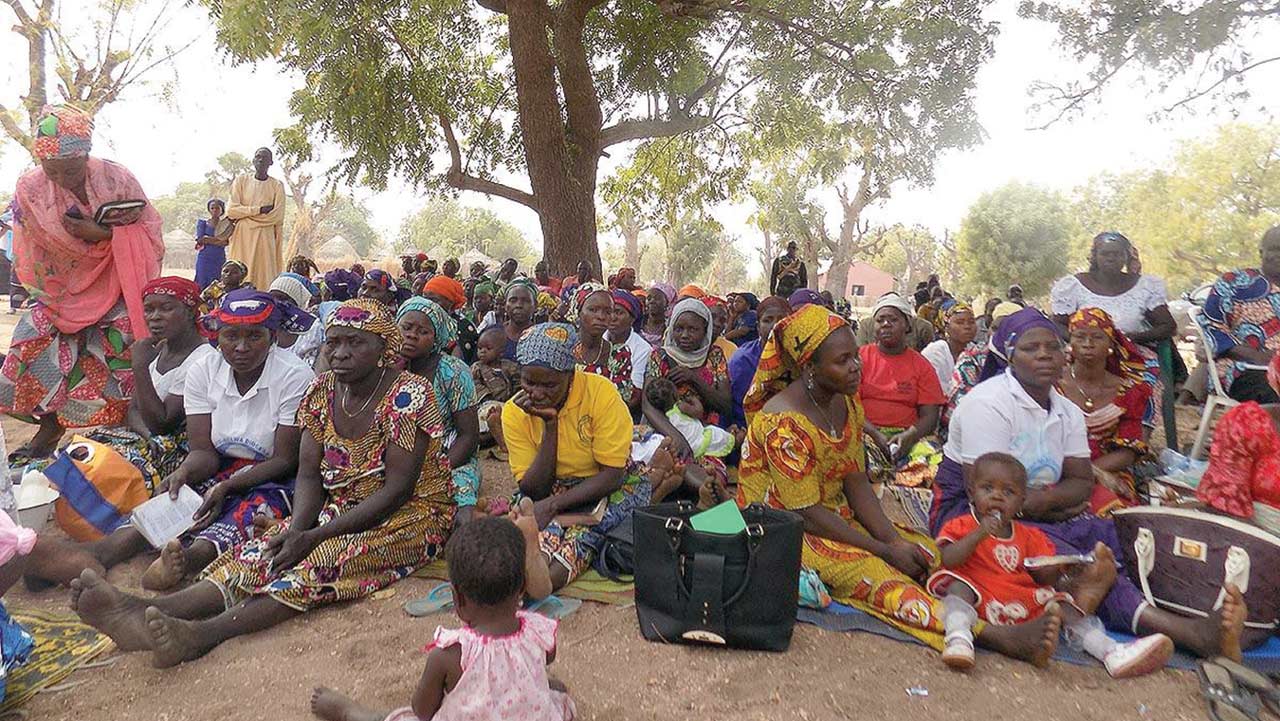
Nghar Yelwa may not sound like a familiar name. It is one of those obscure Nigerian settlements, which, try as much as you can, you may not locate it on the map. But it is one sleepy village in Barkin Ladi Local Government Area of Plateau State that has remained possibly untouched by any form of development and, therefore, devoid of any form of modernisation.
Barkin Ladi, like the rest of Jos, was once a peaceful haven for all Nigerians of diverse ethnic nationalities, political or religious persuasions. But today it has become notorious as one of the epicentres of the hellish bloodletting that occurs when the so-called cattle herdsmen and the settlers engage in clashes that have become a routine pastime.
In June this year, at least 120 persons were killed in Barkin Ladi, Mangu and Riyom local government areas of the state. The narrative as usual was that cattle-herdsmen – presumably all Fulani and presumably all Muslims – had invaded the villages in these local governments shooting sporadically and mercilessly killing and maiming the settlers, presumably all of them Christians.
As usual, the civilised world rose as one to condemn the horrendous attacks and the senseless killings. And as usual, the machinery for conflict resolution was speedily put in place by the government to find a lasting peace in the state now wracked by ethno-religious strife.
One of such efforts is the inauguration of the state Peace Building Agency working, in collaboration with the American embassy in Nigeria, to bring peace and harmony between the Fulani herdsmen and the Berom indigenous settlers. It was at the commencement of the peace building initiative last week that the heroic efforts of an Islamic cleric who is the chief imam of the little known village of Nghar, 83 year-old Abdullahi Abubakar, came to the knowledge of Simon Lalong, the governor of the state.
According to the story, this courageous Imam, living true to the teachings of Islam, put his own life on the line to save the lives of at least 300 Christians. When the attack by the herdsmen started on June 24, these fellows took to their heels. Clutching at their children, they ran for dear lives for more than one hour from their own village towards to Nghar Yelwa, a predominantly Muslim settlement, to escape from the fanatical attackers who were in hot pursuit.
Fate drove them to the house of the chief imam who, in the face of a clear and present danger, decided to give them protection. Imam Abubakar separated the men from the women and locked up the men in his mosque, leaving the women in the safety of his residence.
When the attackers eventually arrived, eyes red in the furious manner of the devil itself, they demanded for the release of the men and the women. But the imam insisted that all the men who had taken refuge in the mosque were fellow Muslims. As for the women, nothing would make him to release them. When his pleas appeared to be falling on deaf ears and the attackers threatened to burn down his house, the septuagenarian went flat on the ground prostrating and rolling in protest. His wailing and protest brought out other Muslims in the community who joined in the plea. At this stage, the attackers gave up.
Governor Lalong was naturally beside himself. He quickly brought this man’s solo exploit to the attention of President Muhammadu Buhari who was in Jos for the inauguration of the peace initiative. The president, who apparently could not contain his joy, promised to reward the Imam with a handshake and the conferment of a national award.
“What the Imam did,” enthused the governor, “did not only save the lives of the people of Plateau State but has reduced the agony of the whole country.” The United States charge de affaires, Mr David Young, who was also at the peace and security conference, commended the heroic example of the imam and urged other Nigerians to emulate him. He urged Nigerians to work for peace even if it meant laying down their lives.
Apart from saving lives, the imam’s heroism, in my view, should help to wipe off the ugly picture in our heads, the wrong picture of Islam being the religion of violence. With a parallel in the history of the early years of his mission, Holy Prophet Mohammed (PBOH), under severe attack from the pagans in Makkah had directed his followers, the early converts to Islam, to flee to Absyssinia, a kingdom that covered the geographical area known today as Ethiopia, to seek refuge under the protection of its Christian king, convinced that with the Christians in that kingdom, the Muslims were safe.
I have had, in my earlier interventions, an occasion to refer to this incident. Though we are averse to the teaching and the learning of history today, it is still necessary to remind those who need to be reminded that in the early days of Islam, true Muslims, not only lived peacefully with their Christian neighbours, they donated money for the construction of churches, some of which have survived till today in countries like Iran and Iraq.
Ordinarily, Imam Abubakar of Nghar Yelwa might not have done anything extraordinary to earn the adulation that he is likely to get from fellow human beings. His religion teaches him to do what he has done – to show love and spread peace all for the sake of God who, as Governor Lalong has said, would reward him appropriately. And I also believe that, if others have forgotten, this Imam of exemplary character, has not forgotten that Islam, then and now, has no business with violence; does not tolerate the shedding of blood unjustly, abhors, even in war, the harming of women and children, the desecration of the holy places of worship including mosques and churches and even the Jewish synagogue. Underpinning all these tenets is the fact, repeated over and over again, that there is no compulsion in religion.
One hopes that Imam Abubakar’s example should help in changing the current narrative that Islam encourages violence and preaches hate and intolerance. It is not Islam that preaches hate and intolerance. It is the manipulation of religion – Islam or Christianity – fuelled by egregious ignorance and outright mischief to achieve political or economic objectives that is at the core of our social, political and even economic crises.
True Muslims, especially those in leadership positions, should not shy away from stressing the fact that has become very glaring – those giving the lie to the true meaning of Islam should be exposed for who they are. The cattle herdsmen, for all we know, may be Muslims but they are driven more by economic imperatives, and not religion, to go out in search of grazing land for their cattle.
But their nomadic life-style has more often than not brought them into infernal conflict with settled farmers whose crops have become fodders for the cows. Since their religion does not tolerate brigandage, it should not also save them from the consequences of any acts of brigandage committed falsely in God’s name.
Certainly the cattle herdsmen wielding AK 47, who pursued their victims to the home of the chief Imam in Nghar Yelwa, as if to exact their pound of flesh, cannot be regarded as true Muslims diligently spreading Islam. Like their Boko Haram counter-parts in the North East of the country, they are pursuing a strange ideology that is utterly selfish and repugnant to Islam and civilisation.Those who perpetually seek to torment us with the baloney of Islamization of the country should, from this Imam’s heroic example, give us a break.
[ad unit=2]





